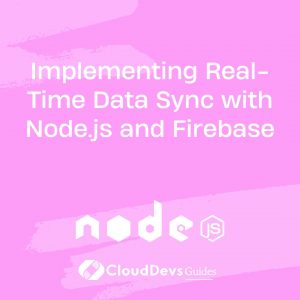Node.js Q & A
How do you handle logging in Node.js?
Logging in Node.js involves capturing and recording application events, errors, debug information, and operational metrics to facilitate troubleshooting, debugging, monitoring, and auditing. Effective logging practices ensure visibility into application behavior, diagnose issues, and maintain application health and reliability. Here’s how you can handle logging in Node.js:
- Choose a Logging Library:
-
-
- Select a logging library or framework suitable for Node.js applications, such as Winston, Bunyan, Pino, or Log4js. Evaluate logging libraries based on features, performance, ease of use, and compatibility with logging formats and transports.
-
- Configure Logging Levels:
-
-
- Define logging levels (e.g., debug, info, warn, error) to categorize log messages based on severity and importance. Set appropriate logging levels for different modules, components, and environments to control verbosity and reduce log noise.
-
- Customize Log Formats:
-
-
- Customize log formats, message templates, and metadata fields to capture relevant information in log entries. Include timestamps, log levels, request identifiers, process IDs, and contextual data to enhance log readability and analysis.
-
- Logging Transport Configuration:
-
-
- Configure logging transports to specify destinations for log output, such as console, file, database, syslog, or third-party logging services (e.g., Loggly, Splunk, Elasticsearch). Use multiple transports to route log messages to different destinations based on log levels or categories.
-
- Error Handling and Exception Logging:
-
-
- Implement error handling mechanisms to catch and log errors, exceptions, and unhandled rejections in Node.js applications. Use try-catch blocks, error middleware, or global error handlers to capture errors and log relevant details for debugging and analysis.
-
- Request Logging and Contextual Logging:
-
-
- Log HTTP request details, headers, payloads, and response statuses to track request processing, identify performance bottlenecks, and diagnose HTTP-related issues. Include request-specific identifiers (e.g., request IDs, correlation IDs) in log entries for tracing and correlation.
-
- Structured Logging and JSON Logging:
-
-
- Use structured logging formats (e.g., JSON) to standardize log data formats and enable log aggregation, parsing, and analysis using log management tools and platforms. Structure log messages as JSON objects to capture key-value pairs and nested data structures for better log parsing and querying.
-
- Log Rotation and Retention:
-
-
- Implement log rotation strategies to manage log file sizes, prevent disk space exhaustion, and maintain log data integrity. Rotate log files periodically based on size, time, or frequency, and archive or delete old log files to manage storage space efficiently.
-
- Logging Middleware Integration:
-
-
- Integrate logging middleware with web frameworks and middleware stacks (e.g., Express.js middleware) to capture request processing details, route information, and middleware execution flow. Use logging middleware to intercept requests, log request metadata, and record response data for auditing and analysis.
-
- Centralized Logging and Monitoring:
-
-
- Centralize log aggregation, analysis, and monitoring using logging platforms, log management tools, or cloud-based logging services. Streamline log ingestion, indexing, and search capabilities to facilitate real-time log monitoring, alerting, and troubleshooting across distributed Node.js applications.
-
- Performance Monitoring and Alerting:
-
-
- Monitor logging performance and overhead to ensure minimal impact on application performance and scalability. Set up logging performance metrics, thresholds, and alerts to detect anomalies, excessive logging, or logging failures and respond proactively to maintain logging reliability.
-
- Security and Compliance Logging:
-
- Implement security logging and compliance logging practices to capture security-related events, authentication events, access control events, and sensitive data accesses. Log security incidents, audit trails, and compliance violations to support incident response, forensics, and regulatory compliance requirements.
By following these best practices, developers can establish robust logging practices in Node.js applications, improve observability, troubleshoot issues effectively, and ensure operational excellence across development, testing, deployment, and production environments.

Previously at


Argentina

GMT-3
Experienced Principal Engineer and Fullstack Developer with a strong focus on Node.js. Over 5 years of Node.js development experience.



